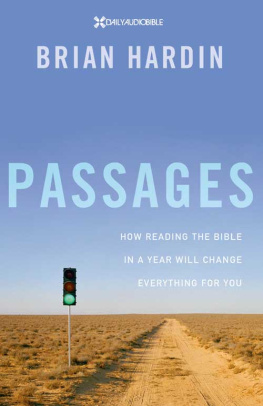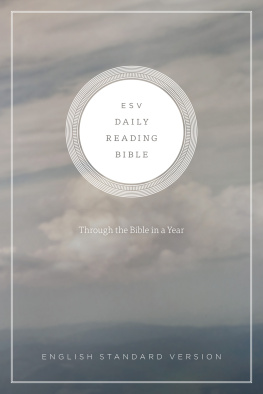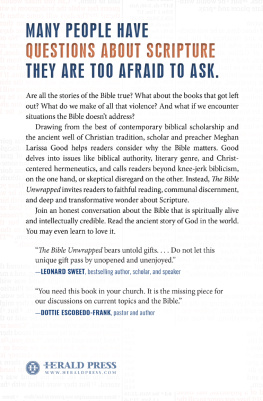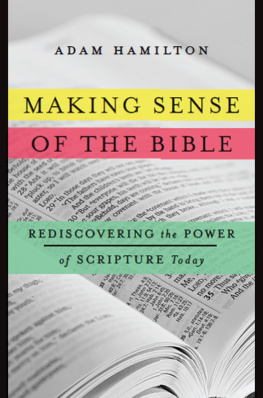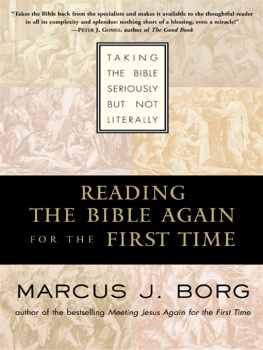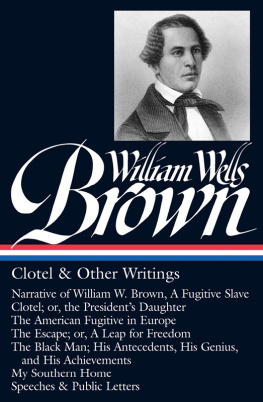Contents
2014 The Biola University Center for Christian Thought
All rights reserved
Published 2014 by
Wm. B. Eerdmans Publishing Co.
2140 Oak Industrial Drive N.E., Grand Rapids, Michigan 49505 /
P.O. Box 163, Cambridge CB3 9PU U.K.
Printed in the United States of America
Library of Congress Cataloging-in-Publication Data
Christian scholarship in the twenty-first century: prospects and perils /
edited by Thomas M. Crisp, Steve L. Porter, Gregg A. Ten Elshof.
pages cm
ISBN 978-0-8028-7144-2 (pbk.: alk. paper)
eISBN 978-1-4674-4207-7 (ePub)
eISBN 978-1-4674-4173-5 (Kindle)
1. Learning and scholarship Religious aspects Christianity.
I. Crisp, Thomas M., editor.
BR115.L32C477 2014
230.07 dc23
2014008697
www.eerdmans.com
Christian Scholarship in the Twenty-First Century
Prospects and Perils
Edited by
Thomas M. Crisp
Steve L. Porter
Gregg A. Ten Elshof
William B. Eerdmans Publishing Company
Grand Rapids, Michigan / Cambridge, U.K.
In the spring of 2012, Biola University launched its Center for Christian Thought, whose mandate is to facilitate high-level Christian scholarship on topics of importance to the Christian community and the broader culture, and to translate and disseminate that scholarship to non-specialists in the Christian community and beyond.
What guides the project is the conviction that the Christian intellectual tradition, a wisdom tradition stretching back thousands of years, is a source of considerable insight on perennial human questions about the shape of the good life, human happiness, virtue, justice, wealth and poverty, spiritual growth, and much else besides, and that Christian scholars can do enormous good in the world by bringing the resources of this tradition into conversation with the academy, the church, and the broader culture. But in the evangelical community and to a lesser extent, the larger Christian community Christian thinkers tend to be under-resourced: Christian college, university, and seminary faculty have considerably higher teaching loads than their secular colleagues, and by and large, there isnt much funding available for distinctly Christian reflection on culture, art, history, philosophy, literature, science, business, medicine, music, and so on, and their connections to human flourishing. Biola Universitys Center aims to play a part in changing this, to free up Christian thinkers to reflect on these topics in light of the Christian intellectual tradition, and to make the riches of this tradition accessible to non-scholars in the church and the broader culture.
Note, though, the talk here of Christian scholarship, distinctly Christian reflection, Christian thinkers, and so forth. These terms have a surface clarity to them. Christian scholarship, for instance: isnt that just scholarship from a Christian perspective? No doubt, but saying exactly what that comes to turns out to be difficult. What is it, for example, to do historical scholarship from a Christian perspective? Or physics, chemistry, psychology? Is there a distinctly Christian approach to studying these topics, and if so, what might that be? What, in short, is Christian scholarship? What distinguishes it from other sorts of scholarship? What is it about Christian scholarship that makes it specifically Christian? Is it a matter of doing scholarship on certain characteristically Christian topics? Or is it rather that Christian scholarship brings to bear certain specifically Christian sources of evidence on its investigations? Or is it perhaps that Christian scholarship is scholarship done through the lens of distinctly Christian affect, valuing, or feeling? Or is it all of this?
These are questions of first importance for the Christian intellectual community, for if there are distinctively Christian approaches to the various academic disciplines, it might be that by approaching them in these ways, we can better manifest the gospel, better image the manifold wisdom and beauty of God, better serve a suffering world. If there are distinctly Christian ways of approaching our scholarship, it would be good to know.
In the spring of 2012, we brought several wise and eminent Christian thinkers together for a semester-long discussion to reflect on the nature of Christian scholarship, which concluded with a conference in May of 2012. This volume comprises ten essays presented at that conference, ten rich and deeply interesting reflections on the nature of Christian scholarship which we are delighted to be able to collect into a single volume. Most of the essays were refined in weekly interdisciplinary discussions around the Centers round table. These were lively conversations undergirded by growing friendships. Indeed, if one way of doing distinctively Christian scholarship involves doing our academic work in community with others, then these essays are deeply Christian. We offer these essays to the Christian intellectual community with the anticipation that they will help members of that community into deeper understanding and practice of robustly Christian scholarship in their fields.
The first essay, Fides Quarens Intellectum, by Nicholas Wolterstorff, is a reflection on the general contours of Christian scholarship. Wolterstorff proposes that the Christian scholar will be animated by two types of love. First, the love of craftsmanship, the love of crafting a fine specimen of scholarship. And second, the love of understanding: the love of moving from a state of perplexity to a state of understanding, which the Christian scholar loves both for the wisdom of God it reveals and for its usefulness in the pursuit of shalom.
Wolterstorff then reflects on the question of how the Christian scholar will engage his or her discipline, suggesting that the Christian scholar should think and act with a Christian mind in the practice of his or her discipline, and speak with a Christian voice. Speaking and acting with a Christian mind in ones discipline, says Wolterstorff, is not a matter of developing a theology of ones discipline, nor a matter of integrating ones Christian faith with the deliverances of ones discipline, nor a matter of pointing out similarities between Christian doctrines and the claims of ones discipline. Rather, its a matter of approaching ones discipline with distinctly Christian habits of attention, modes of perception, habits of evaluation, and capacities for delight and love: ways of attending, of perceiving, of thinking, of valuing and loving shaped and formed by the Scripture and core traditions of the church. To speak with a Christian voice is to speak with a voice which always pays due honor to the ones we speak of, and avoids the abusive and demeaning talk so prevalent in the academy. And its to speak in a voice that can be heard in the academy, that is appropriate to the standards of the discipline and contributes to the discussion of the discipline.
Alvin Plantingas essay, On Christian Scholarship, is likewise a reflection on the general contours of Christian scholarship. Christian scholarship, says Plantinga, differs from other sorts of scholarship in its use of the teaching of Christian Scripture in attempting to understand the world. Such scholarship involves two main projects. First, there is cultural criticism: pointing out cultural and intellectual projects that proceed from assumptions inimical to Christian faith and showing where and how they diverge from Christian commitment. And second, there is a positive task, something that goes beyond mere criticism: here the goal is to engage the various topics and projects of non-Christian scholarship, to build theories about them, but to do so from an evidence base that includes those things we know by faith. So, for example, where our naturalist colleagues will theorize about our love of music purely in terms of its evolutionary significance, Christian theorizing about it will go further, holding, perhaps, that our love of music is a gift from God that puts us in touch with beauty, beauty that flows from God and of which God is the chief exemplar. Engaging these projects may come at a cost to the Christian scholar, resulting in a certain amount of disdain from those in her discipline. Facing this requires Christian boldness and courage; the Christian scholar must remember that the main aim is not acceptance by the mainstream of her discipline, but faithfulness to the Lord.


